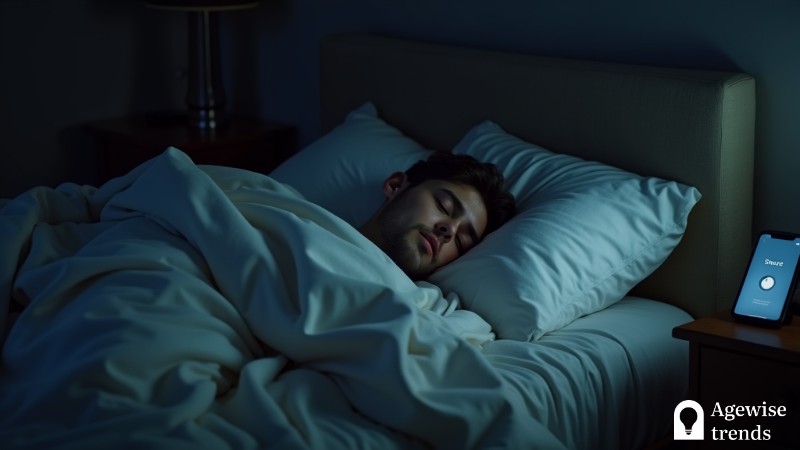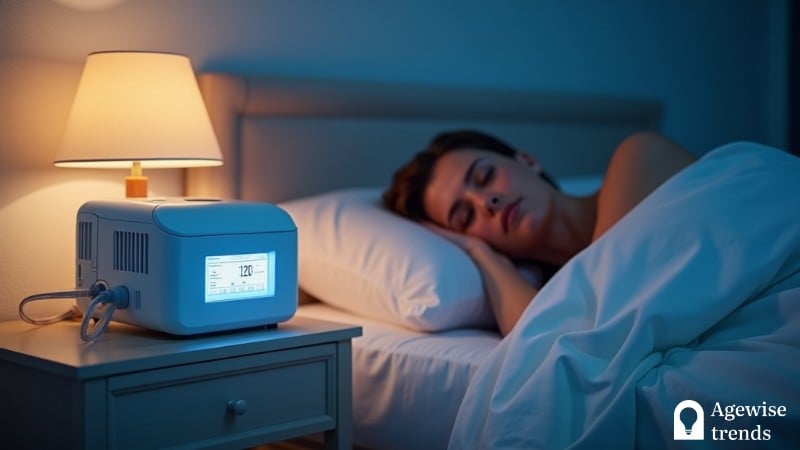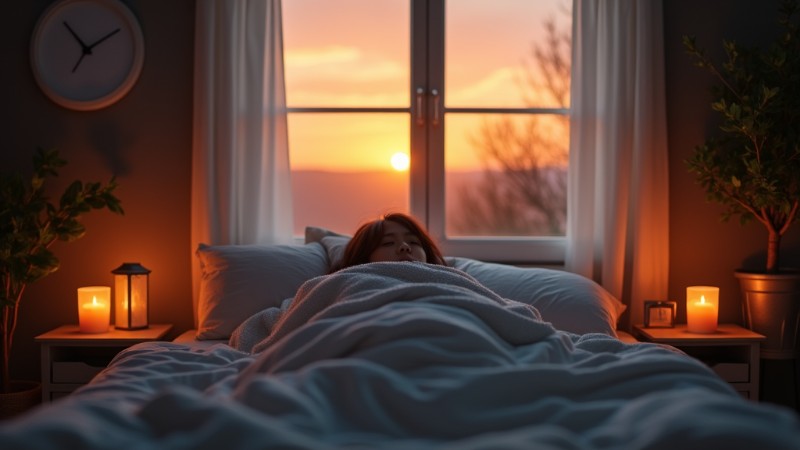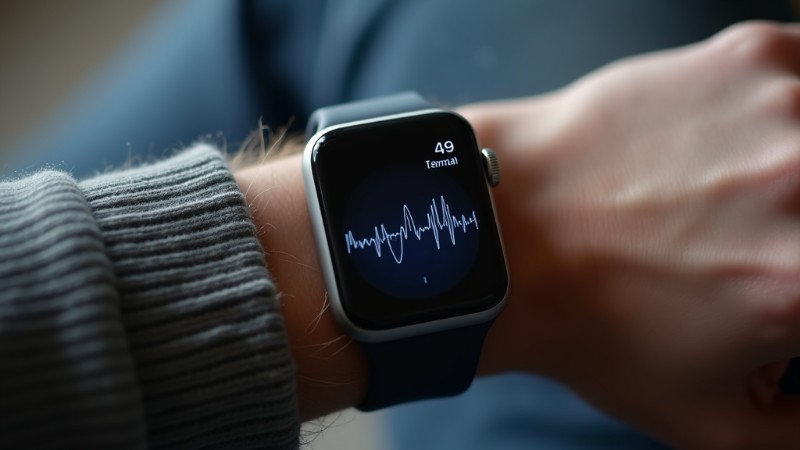Smartphones are incredibly versatile, replacing a wide range of tools, including cameras, calculators, and even alarm clocks. However, using your phone as an alarm clock could be harming your sleep and overall well-being.
The habit of keeping your phone on the bedside table not only disrupts your sleep but can also lead to stress, anxiety, and other sleep disorders. Research suggests that adopting healthier bedtime habits, like keeping your phone out of the bedroom, can significantly improve your quality of sleep and mental health.
Key Takeaways
Using your phone as an alarm clock can harm your sleep and overall well-being by disrupting your circadian rhythm and causing stress, anxiety, and other sleep disorders.
- Smartphones emit blue light that suppresses melatonin, making it harder to fall asleep and stay asleep.
- Constant phone use before bed leads to overstimulation, delaying sleep and fragmenting rest, leaving you feeling groggy and unfocused the next day.
- Removing your phone from the bedroom creates a more conducive environment for sleep, allowing you to wake up feeling rejuvenated, alert, and prepared to tackle the day ahead.
How phones disrupt your sleep
One of the most significant reasons smartphones affect sleep is the blue light emitted from screens. This blue light suppresses melatonin, the hormone that regulates sleep, making it harder to fall asleep and stay asleep. According to studies published in PLoS One, reducing phone use before bedtime helps minimize pre-sleep arousal, reduces sleep latency (the time it takes to fall asleep), and increases sleep duration.
Aside from blue light, the constant stimulation from social media, emails, or notifications keeps your brain active when it should be winding down. Platforms like YouTube, Reddit, and Instagram are designed to hold your attention, often causing people to lose track of time scrolling through content. This overstimulation delays sleep and fragments your rest, leaving you feeling groggy and unfocused the next day.
The link between phones and sleep disorders
Constant phone use before bed has been linked to a range of sleep disorders, including insomnia and delayed sleep phase syndrome. These disorders disrupt the natural circadian rhythm, leading to poor-quality sleep and difficulty waking up in the morning.
Moreover, individuals with existing conditions like sleep apnea, where breathing repeatedly stops and starts during sleep, may find their symptoms exacerbated by poor bedtime habits. Sleep apnea already interferes with rest, and the added impact of a smartphone can make restorative sleep even more elusive.
Harmful cycle of phone as an alarm
The snooze button trap: Relying on your phone for an alarm makes it easy to fall into the trap of hitting the snooze button multiple times. Although snoozing may feel harmless, it actually interrupts your REM sleep, which is essential for memory processing and emotional balance. Sleep experts, including Dr. Brandon Peters-Mathews, emphasize that fragmented REM sleep leaves you feeling groggy and unproductive throughout the day.
Rather than hitting snooze, it’s better to wake up at a consistent time each day. This helps regulate your body’s internal clock, also known as the circadian rhythm, promoting more restful sleep over time.
The morning scroll: When your phone doubles as your alarm clock, it’s hard to resist the urge to check notifications as soon as you wake up. Research by the International Data Corporation revealed that 80% of smartphone users reach for their phones first thing in the morning. Scrolling through emails, social media, or news can set a stressful tone for the day and delay your morning routine.
Starting your morning with digital distractions can also impact your mood and focus. Instead of scrolling, try engaging in relaxation techniques such as stretching, journaling, or practicing mindfulness to create a more positive start to your day.
Benefits of a phone-free bedroom
Better sleep and relaxation: Removing your phone from the bedroom creates a more conducive environment for sleep. Without the constant buzz of notifications or the temptation to scroll, you’re more likely to fall asleep faster and stay asleep throughout the night. Additionally, engaging in relaxation techniques like deep breathing, progressive muscle relaxation, or guided meditation can help calm your mind before bed.
Studies by the University of East London have shown that sleeping without a smartphone improves sleep quality, focus, and even relationships. A phone-free bedtime allows your brain to unwind naturally, free from the overstimulation of screens.
Improved mental health: Excessive phone use has been linked to increased stress, anxiety, and even depression. Storing your phone outside the bedroom minimizes exposure to these triggers, helping create a calming environment during your deepest sleep. This can be especially beneficial for individuals dealing with sleep disorders or chronic stress.
Research from the University of Chicago highlights that poor sleep can lead to exhaustion and unhealthy eating habits, such as craving junk food. By prioritizing sleep and mental well-being, you’re more likely to maintain a healthy lifestyle and feel better overall.
Better management of sleep disorders: For those with sleep apnea or other sleep disorders, establishing a consistent bedtime routine without phone distractions is crucial. Sleep apnea, in particular, requires a controlled sleep environment to minimize disruptions. Using devices like CPAP (continuous positive airway pressure) machines or incorporating relaxation techniques before bed can enhance the quality of sleep for individuals with this condition.
Practical steps to replace your phone alarm
Switching from relying on your phone to waking up to healthier habits may feel challenging initially, but it’s easier than you think. By implementing a few practical steps, you can create a phone-free bedtime routine that promotes better sleep and overall well-being. Here’s how you can get started.
Invest in a traditional alarm clock
The easiest way to stop using your phone alarm is to switch to a dedicated alarm clock. There are plenty of options available, from simple analog clocks to more advanced wake-up lights like the Beurer WL50. These devices mimic natural sunlight and use gentle sounds, such as birdsong, to wake you up gradually, helping you feel refreshed in the morning.
Unlike phones, alarm clocks don’t come with distractions, ensuring your mornings start on a focused note.
Establish a phone-free bedtime routine
Creating a healthy bedtime routine is essential for better sleep. Start by setting a consistent bedtime and wake-up time, even on weekends. In the hour before bed, avoid screens and focus on relaxing activities like reading, journaling, or practicing mindfulness.
Using relaxation techniques can also help prepare your body for sleep. Deep breathing exercises or progressive muscle relaxation can reduce stress and calm the mind, making it easier to fall asleep.
Charge your phone in another room
To remove the temptation of late-night scrolling, charge your phone overnight in another room. This simple change ensures your bedroom remains a phone-free zone, helping you focus on rest. If you’re concerned about missing emergencies, consider using a smart speaker like Alexa or Google Nest for hands-free calls and alerts.
Reclaiming restful sleep
Smartphones are an integral part of modern life, but they don’t belong in the bedroom. The blue light, constant notifications, and distractions they bring can significantly harm your sleep quality and overall health. For individuals already dealing with sleep disorders like insomnia or sleep apnea, the impact can be even greater.
By removing your phone from your bedtime routine and incorporating relaxation techniques, you can create a healthier sleep environment. Start by replacing your phone alarm with a traditional clock, setting a consistent bedtime, and prioritizing activities that promote relaxation and calm.
Reclaiming your sleep doesn’t have to be complicated. Small changes—like charging your phone outside the bedroom or using a wake-up light—can make a big difference in your sleep quality and mental health. In today’s fast-paced world, taking steps to improve your rest is an investment in your overall well-being.
In the end, better sleep means better mornings. Leaving your phone outside the bedroom helps you wake up feeling rejuvenated, alert, and prepared to tackle the day ahead. With improved sleep, your body and mind will thank you, paving the way for a happier and healthier life.















